Cats
Do Cats Like Peanut Butter, Is Peanut Butter Safe For Cats To Eat?
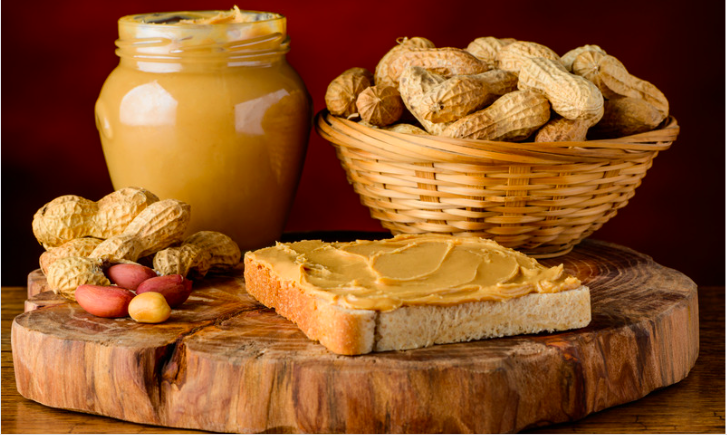
Is Peanut Butter Safe for Cats, Can Cats Eat Peanut Butter?
Whether you’re seeking to give your cat a special treat, or if they simply enjoy attempting to swipe food from the table, you may be thinking, “Can cats eat peanut butter?” It is true that peanut butter is not the ideal cat snack, but the substance is not technically poisonous to them either.
Do Cats Eat Peanut Butter?
In a nutshell, the response is no. Cats are carnivores, which means that they must obtain their sustenance from meat. Peanut butter, in the same way, that cookies aren’t the greatest for us, supplies cats with little nutritional value and an overabundance of some items, such as the following:
High in fat: Peanut butter contains trans-fatty acids to keep it shelf-stable, which helps to keep it fresh longer. Cats should not consume excessive amounts of this sort of fat.
High sodium (Salt): Content is also present in most brands of peanut butter, and an excessive amount is harmful to your pet’s health.
Contains a lot of calories: Indoor cats are already predisposed to gaining weight, which can lead to a range of health problems. The consumption of high-calorie peanut butter can contribute to this condition.
Is peanut butter generally safe for cats to eat?
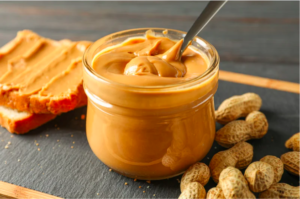
Is peanut butter bad for cats? Is peanut butter bad for cats? However, while normal peanut butter is not harmful to cats, it can create some health problems.
The following are some of the problems that peanut butter might cause:
Choking Hazard: Because of the thick nature of peanut butter, even a small bit of it could become lodged in your cat’s throat.
Allergies: As with people, cats can develop peanut allergies and other allergies. Allergies can manifest themselves in various ways, with symptoms ranging from itchy skin and ear infections to potentially life-threatening anaphylaxis.
Gastrointestinal upset: Cats that consume peanut butter may develop diarrhoea, flatulence, vomiting, and stomach discomfort due to their consumption.
Xylitol Poisoning: In other to attract consumer demand for products that are low in sugar, some companies have begun substituting xylitol for sugar in their products.
Unfortunately, this product is exceedingly poisonous to animals, which is unfortunate. Please make certain that the peanut butter you are giving your pet does not contain xylitol before giving it to him.
Accidental poisoning: Peanut butter is frequently laced with poison in order to attract and eradicate rats and insects from a structure. If your cat is accustomed to receiving peanut butter as a reward, it is conceivable that it will become unwell as a result of the poisoning.
Understanding the average peanut butter spread
The peanut is a part of the legume family, including beans and peas (other examples include beans and soy). Despite the fact that it is not a nut, the peanut is packed with monounsaturated fat, which many consider heart-healthy.
Peanut Butter (PB) has 16 grams of fat in just 2 tablespoons, which is a lot of fat. In addition, this normal serving size offers 8 grams of protein and 6 grams of carbohydrates per serving. Peanut butter, for those who are not allergic to peanuts or intolerant to legumes, can be a delightful and accessible source of healthy macronutrients for those who are not.
Of fact, not all jars of peanut butter have the same combination of ingredients. Natural brands often contain only peanuts and salt as their main ingredients. If, on the other hand, you purchase any popular brand of peanut butter, you may be startled by what you discover within.
Ingredients such as hydrogenated vegetable oil, sugar, and even artificial preservatives such as maltodextrin are frequently included in processed foods. These items are well-known for having detrimental impacts on the body, such as weight gain, food cravings, and blood sugar rises, among other things.
Put yourself in your cat’s shoes and ask yourself: are these the kinds of things you want your cat (let alone your human family) to consume regularly? Depending on how much peanut butter your household consumes on a monthly average, you could find it worthwhile to spend a few extra dollars on higher-quality peanut butter.
Can cats eat peanut butter?
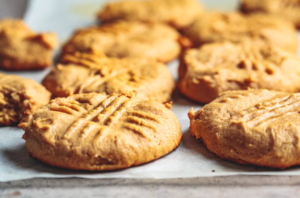
We all know how much dogs adore peanut butter. The point is that numerous canine products are available in the flavours of peanut butter and nut butter, or even contain peanut butter as an active ingredient, Can cats, on the other hand, consume peanut butter?
In a technical sense, no. Cats should not be allowed to consume peanut butter. In fact, because cats originated as carnivores, your feline companion can obtain all of the nutrients she requires simply by consuming meat and fish.
Most of the time, you would not need to supplement your cat’s diet with anything other than her regular dry cat food, wet cat food, or raw food diet. However, giving your cat a small amount of PB now and again should be perfectly acceptable to him.
If there is a young kitty in your home, you can introduce her to peanut butter in small amounts to determine if she enjoys it.
Just be on the lookout for any signs or symptoms of a poor reaction, especially because kitties tend to have less-developed immune and digestive systems than their feline counterparts.
Is Peanut Butter Safe for Cats to Eat?
When in a pinch, some pet owners turn to peanut butter. If you are having a problem getting your cat to take a prescription, dipping the tablet in peanut butter may be a successful approach to “trick” her into taking her medication on time.
If you’re wondering how much peanut butter should a cat consume, the answer is the less, the better. A whopping 188 calories are included within those same 2 tablespoons of peanut butter.
That much peanut butter in a little cat’s body increases her chances of gaining weight dramatically. It might also have unfavourable consequences on the body (discussed shortly).
So, if you are prepared to feed your cat peanut butter, only give her a tiny quantity and only on special occasions. Allow the cat to lick it off your finger or put a small dab on some of her food and watch her go crazy.
Fair warning: she might enjoy it, so don’t be surprised if she starts requesting it more frequently.
Is peanut butter a favourite treat for cats?
From one cat to the next, it is different. Some cats enjoy it, while others do not. Feed her a tiny taste from the tip of your finger to see whether she loves it and see if she has a negative reaction to it before proceeding.
If your cat enjoys it, you can safely feed her medicine in peanut butter if she is a fan of the flavour. Caution should be exercised since some people use peanut butter to bait mouse traps, resulting in an unpleasant and embarrassing situation for your cat.
(There is nothing more heartbreaking than a cat trapped in a mousetrap.) Because peanut butter is not the healthiest treat for your cat, it should only be given in moderation to your cat.
Cats and peanut butter can get into a lot of trouble at times.
So, What Should You Do If Your Cat Has a Gastrointestinal Complication Following a PB?
Whether your cat vomits, has diarrhoea, or simply appears uncomfortable after consuming peanut butter, it strongly indicates that she has a low tolerance for the substance. So please don’t give her any more of the dreaded medication!
If the symptoms do not reduce on their own after a few hours, you may need to consult with your veterinarian for assistance. You will be able to get advice on what to do next from them, depending on the specific circumstances of the issue.
What’s the bottom line?
Is peanut butter bad for cats? Is peanut butter bad for cats? No, not at all. A modest smear of peanut butter on a piece of toast now and then may be enough as a treat. Peanut butter may also effectively persuade your cat to consume her medication.
On the other hand, Peanut butter is devoid of any nutritious value for your feline companion. It’s not a good idea to get into the habit of offering your cat peanut butter daily. The fatty spread’s high-fat content can easily cause gastrointestinal distress, gas, and bloating.
Furthermore, overfeeding your pet with too many special treats can result in weight gain, unwanted begging behaviours, and even a disinterest in her normal food if she is not given enough of it.
Finally, because many pest control treatments employ peanut butter as a lure to attract vermin, you are endangering your cat’s life if you give her too much of this treat.
When she walks about the neighbourhood and smells the buttery peanut odour, she may be more likely to get herself into a potentially dangerous situation.
So, if in doubt, avoid the Skippy altogether. Your cat will be quite content even if you don’t give anything to her.
Questions People Also Ask (FAQs)
Can cats eat peanut butter safely?
While cats can technically eat peanut butter in small amounts, it is not recommended as a regular treat. Peanut butter contains high levels of fat and sugar, which can lead to obesity and other health issues in cats.
Is Peanut Butter Harmful to Cats?
Peanut butter is not inherently toxic to cats, but it can cause digestive issues due to its high fat content. Some brands also contain xylitol, a sweetener that is extremely toxic to cats and dogs.
Do cats enjoy the taste of peanut butter?
Some cats might enjoy the taste and texture of peanut butter, but many are indifferent or even dislike it. Cats are obligate carnivores and typically prefer meat-based flavors over sweet or nutty tastes.
What are the risks associated with feeding peanut butter to cats?
The primary risks include potential choking hazards, digestive upset, and the possibility of consuming harmful ingredients like xylitol. Additionally, the high fat content can contribute to weight gain and pancreatitis.
Are there safer alternatives to peanut butter for cats?
Yes, there are many cat-friendly treats available that are specifically formulated for feline consumption. These treats are designed to be nutritionally appropriate and safe for cats, unlike peanut butter. Always consult with your veterinarian before introducing new treats into your cat’s diet.
We appreciate you taking the time to read!
Finally, we hope you found this article interesting? And what do you think about ”Do Cats Like Peanut Butter, Is Peanut Butter Safe For Cats To Eat??”
Please feel free to share or inform your friends about this article and this site, thanks!
Please feel free to share your thoughts with us in the box below.
Cats
Clever Cats: Breeds That Learn Fast
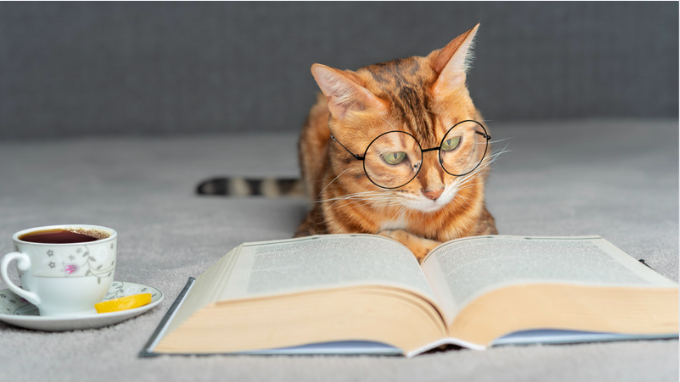
Clever Cats: Breeds That Learn Fast
Cats have always fascinated us with their agility, independence, and sometimes enigmatic behavior. Among the vast array of feline breeds, some stand out for their remarkable intelligence and ability to learn quickly.
In this article, we will delve into the world of these exceptional cat breeds, exploring their unique characteristics, training capabilities, and what makes them such quick learners.
Whether you’re a seasoned cat owner or considering adopting a new feline friend, this comprehensive guide will help you understand the breeds that are not only intelligent but also a joy to train.
Why Intelligence Matters in Cats
Understanding Feline Intelligence
Feline intelligence is a multi-faceted trait that encompasses problem-solving abilities, social learning, and adaptability. Unlike dogs, cats often showcase their intelligence in more subtle ways, such as manipulating objects to get what they want or learning routines and commands.
Benefits of Owning Intelligent Cats
Owning an intelligent cat comes with several benefits. These cats are more interactive and engaging, making them excellent companions. They can learn tricks, follow commands, and even understand basic household rules, which makes living with them more enjoyable and less challenging.
Top Cat Breeds Known for Their Intelligence
Abyssinian
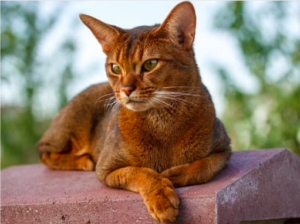
Overview
The Abyssinian is often hailed as one of the smartest cat breeds. Known for their curiosity and playful nature, Abyssinians are quick learners who thrive on mental stimulation.
Training and Activities
Abyssinians are highly trainable and enjoy interactive toys and puzzle feeders. They can learn tricks such as fetching and even walking on a leash. Their love for heights means they appreciate cat trees and climbing structures.
Siamese
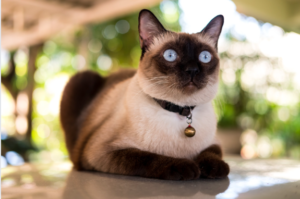
Overview
Siamese cats are not only intelligent but also highly vocal and sociable. They form strong bonds with their owners and are always eager to engage in activities.
Training and Activities
Siamese cats are quick to learn tricks and commands. They enjoy interactive play and can be trained to perform simple tasks like opening doors or retrieving items. Their vocal nature also makes them responsive to verbal cues.
Bengal
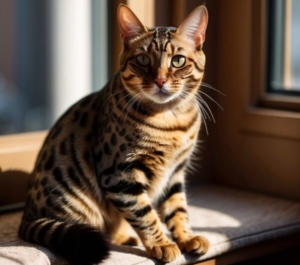
Overview
Bengals are known for their striking appearance and high energy levels. Their intelligence is reflected in their ability to solve problems and learn complex tasks.
Training and Activities
Bengals enjoy activities that challenge their minds, such as agility courses and puzzle toys. They can be trained to walk on a leash and perform tricks. Providing them with interactive playtime helps in channeling their energy positively.
Burmese
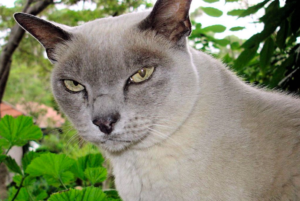
Overview
Burmese cats are affectionate, people-oriented, and intelligent. They enjoy being involved in family activities and can be trained to follow various commands.
Training and Activities
Burmese cats are quick learners and respond well to positive reinforcement. They enjoy learning tricks, playing fetch, and interactive games that stimulate their minds.
Scottish Fold
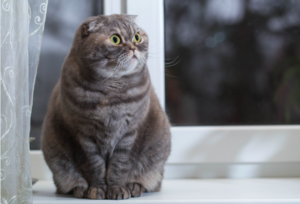
Overview
Scottish Folds are known for their distinctive folded ears and sweet demeanor. Despite their calm appearance, they are intelligent and can learn quickly.
Training and Activities
Scottish Folds enjoy interactive toys and games. They can learn tricks and commands and appreciate routines that keep their minds engaged.
Training Tips for Intelligent Cats
Start Early
Begin training your cat as early as possible. Kittens are more receptive to learning new behaviors and routines.
Use Positive Reinforcement
Reward your cat with treats, praise, or playtime whenever they successfully perform a desired behavior. Positive reinforcement strengthens the association between the action and the reward.
Keep Sessions Short and Fun
Cats have shorter attention spans than dogs, so keep training sessions brief and enjoyable. Incorporate playtime to make learning fun for your cat.
Be Patient and Consistent
Patience and consistency are key when training cats. Repeat commands and routines regularly, and avoid punishing your cat for mistakes. Consistency helps reinforce learning and builds trust.
Challenges of Training Intelligent Cats
Independence and Stubbornness
Intelligent cats can sometimes be independent and stubborn. They might choose to ignore commands if they are not in the mood, so it’s important to understand their behavior and work with it.
Need for Mental Stimulation
Highly intelligent cats require constant mental stimulation. Boredom can lead to behavioral issues, so ensure they have plenty of toys, activities, and interaction to keep their minds engaged.
Managing High Energy Levels
Breeds like Bengals have high energy levels that need to be managed. Providing them with enough physical and mental exercise is crucial to prevent destructive behavior.
Living with Intelligent Cats
Creating an Enriched Environment
An enriched environment is essential for intelligent cats. This includes a variety of toys, climbing structures, scratching posts, and interactive feeders to keep them stimulated.
Social Interaction
Intelligent cats thrive on social interaction. Spend quality time playing, training, and simply bonding with your cat to ensure they feel valued and engaged.
Understanding Their Needs
Each intelligent breed has its own unique needs and preferences. Understanding these and catering to them will help you build a strong and positive relationship with your cat.
Conclusion
Owning an intelligent cat can be an incredibly rewarding experience. These quick learners bring joy, challenge, and companionship to their owners. By understanding their unique characteristics and providing the right environment and training, you can foster a deep and fulfilling relationship with your feline friend.
Whether you choose an Abyssinian, Siamese, Bengal, Burmese, or Scottish Fold, you’re sure to enjoy the remarkable intelligence and personality they bring into your home.
Frequently Asked Questions (FAQs)
What makes a cat breed intelligent?
Intelligent cat breeds often show high levels of problem-solving abilities, adaptability, and social learning. They can quickly learn commands, tricks, and routines.
Can all cats be trained?
While some breeds are more receptive to training than others, all cats can be trained to some extent. Patience, consistency, and positive reinforcement are key to successful training.
What are the best toys for intelligent cats?
Interactive toys, puzzle feeders, and climbing structures are ideal for intelligent cats. These toys provide mental stimulation and keep them engaged.
How do I keep my intelligent cat from getting bored?
Provide a variety of toys, engage in regular playtime, and introduce new activities regularly. Rotating toys and creating an enriched environment also help prevent boredom.
Are intelligent cats more difficult to care for?
Intelligent cats can be more demanding in terms of mental stimulation and interaction. However, with the right approach and environment, they can be delightful companions.
We appreciate you for taking the time to read this article!
Finally, we hope you found this article interesting? And what do you think about ”Clever Cats: Breeds That Learn Fast!?”
Please feel free to share or inform your friends about this article and this site, thanks!
And let us know if you observe something that isn’t quite right.
Cats
The Enchanting Scottish Fold: A Guide to the Adorable Feline with Folded Ears
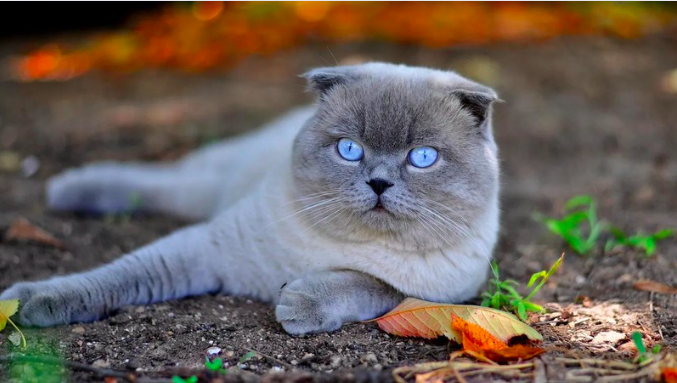
The Enchanting Scottish Fold: A Guide to the Adorable Feline with Folded Ears
Welcome to the world of the Scottish Fold cat, where charm and curiosity meet in an irresistibly adorable package. With their distinctive folded ears and sweet expression, Scottish Folds have captured the hearts of cat lovers around the world. Originally hailing from Scotland, these cats are known for their gentle demeanor, playful nature, and loving personality.
In this comprehensive guide, we will delve into the fascinating world of Scottish Fold cats, exploring their history, physical characteristics, personality traits, and care requirements. Whether you’re a seasoned cat owner or considering adding a feline friend to your family, the Scottish Fold’s unique charm and affectionate nature make them a delightful addition to any home. Join us as we unravel the enchanting tale of the Scottish Fold cat and discover why they are such beloved companions.
Fold
Overview
The Scottish Fold cat is a charming and distinctive breed known for its unique folded ears and sweet expression. Originating from Scotland in the 1960s, these cats have captured the hearts of many with their endearing appearance and affectionate nature. Scottish Folds are known for their gentle and loving temperament, making them wonderful companions for families and individuals alike.
History and Origins
The Scottish Fold breed traces its roots back to a white barn cat named Susie, who was found in Scotland in the early 1960s. Susie had a unique genetic mutation that caused her ears to fold forward, giving her an owl-like appearance. This trait was passed down to her kittens, and thus, the Scottish Fold breed was born. The breed quickly gained popularity for its distinctive look and friendly demeanor, and it was officially recognized by cat registries in the 1970s.
Physical Characteristics
- Folded Ears: The most distinctive feature of the Scottish Fold is its folded ears, which give the cat a sweet and owl-like appearance. Not all Scottish Folds have folded ears; some may have straight ears, known as “straights,” which are also common in the breed.
- Coat and Colors: Scottish Folds can have either a short or long coat, both of which are dense and plush. They come in a variety of colors and patterns, including tabby, tortoiseshell, and solid colors like white, black, and blue.
- Body Structure: Scottish Folds are medium-sized cats with a rounded appearance. They have sturdy bodies, round faces, and large, expressive eyes that give them a sweet and gentle expression.
Personality and Behavior
Scottish Folds are known for their calm and laid-back demeanor. They are affectionate cats that enjoy being around people and are often described as “lap cats” due to their love of cuddling. They are also known for their playful nature and enjoy interactive toys and games. Scottish Folds are generally good with children and other pets, making them a great choice for families.

Health and Care
- Ear Care: Due to their folded ears, Scottish Folds may be prone to ear infections. It’s important to regularly check and clean their ears to prevent issues.
- Grooming: Scottish Folds have dense coats that require regular grooming to prevent matting and tangling. Weekly brushing is usually sufficient to keep their coat in good condition.
- Health Concerns: Scottish Folds are generally healthy, but they may be prone to certain genetic conditions, including a skeletal disorder known as osteochondrodysplasia. Responsible breeding practices can help minimize the risk of these health issues.
Training and Activities
Scottish Folds are intelligent cats that can be trained to perform tricks and commands. They enjoy interactive play and benefit from toys that stimulate their minds and bodies. Providing them with scratching posts and other outlets for their natural behaviors can help keep them happy and healthy.
Compatibility with Families and Other Pets
Scottish Folds are known for their gentle and affectionate nature, making them great companions for families. They are good with children and other pets, including dogs, and can adapt well to different environments. Their loving and sociable nature makes them a popular choice for households looking for a friendly and affectionate pet.
Conclusion
The Scottish Fold cat is a unique and charming breed known for its folded ears and sweet expression. With their gentle demeanor and affectionate nature, Scottish Folds make wonderful companions for families and individuals alike. Whether you’re looking for a lap cat to cuddle with or a playful friend to keep you entertained, the Scottish Fold cat is sure to bring joy and companionship to your home.
FAQs about Scottish Fold Cats
Why do Scottish Folds have folded ears?
Scottish Folds have a genetic mutation that affects the cartilage in their ears, causing them to fold forward. This unique trait gives them their distinctive appearance.
Are Scottish Folds prone to ear problems due to their folded ears?
Yes, Scottish Folds may be more prone to ear infections due to the fold in their ears, which can trap dirt and moisture. Regular cleaning and monitoring of their ears can help prevent issues.
Do Scottish Folds have any health issues associated with their folded ears?
Scottish Folds may be prone to a condition called osteochondrodysplasia, which affects the development of their cartilage and bones. Responsible breeding practices can help reduce the risk of this condition.
Are Scottish Folds good with children and other pets?
Scottish Folds are known for their gentle and friendly nature, making them good companions for families with children and other pets. They enjoy socializing and being part of the family.
Do Scottish Folds require a lot of grooming?
Scottish Folds have dense coats that require regular grooming to prevent matting and tangles. Weekly brushing is recommended to keep their coat in good condition.
We appreciate you for taking the time to read this article!
Finally, we hope you found this article interesting? And what do you think about ”The Enchanting Scottish Fold: A Guide to the Adorable Feline with Folded Ears!?”
Please feel free to share or inform your friends about this article and this site, thanks!
And let us know if you observe something that isn’t quite right.
Cats
The Enchanting Burmese Cat: Affectionate, Playful, and Loyal
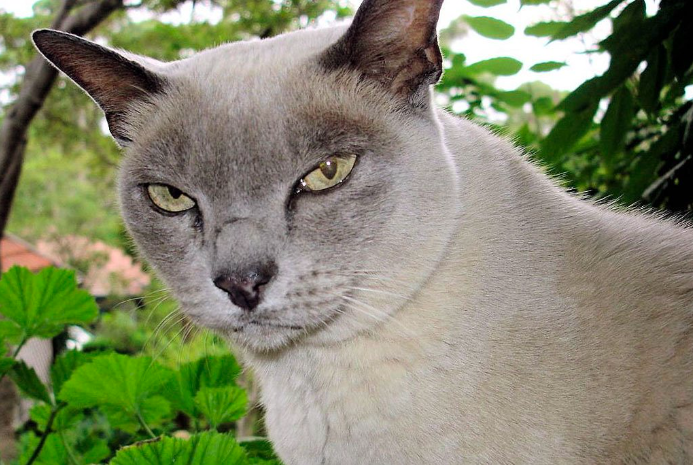
The Enchanting Burmese Cat: Affectionate, Playful, and Loyal
Enter the world of the Burmese cat, where elegance meets affection in a charming feline companion. Originating from the temples of Burma, these cats have captured the hearts of cat lovers worldwide with their striking appearance and loving nature. With their sleek coats, expressive eyes, and playful demeanor, Burmese cats are not just pets; they are cherished members of the family.
In this comprehensive guide, we delve into the captivating world of Burmese cats, exploring their history, physical characteristics, personality traits, and care requirements. Whether you’re a seasoned cat owner or considering adding a feline friend to your family, the Burmese cat’s unique blend of beauty, intelligence, and affection is sure to captivate you. Join us as we unravel the enchanting tale of the Burmese cat and discover why they are such beloved companions.
Burmese
Overview
The Burmese cat is a breed known for its striking appearance and affectionate nature. Originating from Burma (now Myanmar), these cats are renowned for their sleek, muscular bodies, expressive eyes, and silky coats. Burmese cats are often described as “people-oriented,” as they form strong bonds with their human companions and enjoy being part of the family. Their playful and curious nature makes them delightful companions for both children and adults alike.
History and Origins
The history of the Burmese cat can be traced back to ancient Burma, where they were considered sacred and kept by monks in temples. They were later brought to the West in the early 20th century and quickly gained popularity for their striking appearance and affectionate personality. The breed has since become a favorite among cat enthusiasts worldwide, known for its loving and loyal nature.
Physical Characteristics
- Coat and Colors: Burmese cats have short, sleek coats that lie close to the body. They come in a variety of colors, including sable, champagne, blue, and platinum. The coat is soft and silky to the touch, adding to the breed’s overall charm.
- Body Structure: Burmese cats are medium-sized with a muscular build. They have rounded heads, large, expressive eyes, and short, straight noses. Their compact bodies give them a sturdy appearance, and they move with grace and agility.
- Eyes and Ears: Their eyes are one of their most striking features, being large, expressive, and usually a deep, rich color that complements their coat. Their ears are medium-sized, slightly rounded at the tips, and set wide apart on the head.
Personality and Behavior
Burmese cats are known for their affectionate and sociable nature. They are often described as “dog-like” due to their tendency to follow their owners around the house and seek out human companionship. They are also highly intelligent and enjoy interactive play, making them great companions for families with children or other pets.
In addition to their affectionate nature, Burmese cats are also known for their vocalizations. They have a soft, sweet voice that they use to communicate with their owners, often engaging in “conversations” and expressing their needs and desires.
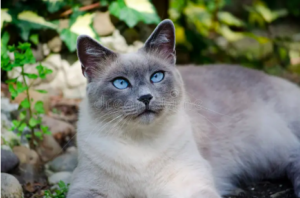
Health and Care
- Grooming: Burmese cats have short coats that require minimal grooming. Weekly brushing is usually sufficient to remove loose hair and keep their coat shiny. They also benefit from regular dental care to prevent oral health issues.
- Diet: A high-quality, balanced diet is essential for maintaining the health and vitality of Burmese cats. They should be fed a diet that is appropriate for their age, size, and activity level to ensure they receive the nutrients they need.
- Health Concerns: Burmese cats are generally healthy, but they can be prone to certain genetic conditions such as hypertrophic cardiomyopathy (HCM) and diabetes. Regular veterinary check-ups and a healthy diet can help manage these risks.
Training and Activities
Burmese cats are intelligent and can be trained to perform various tricks and commands. They enjoy interactive play and thrive on mental stimulation. Providing them with toys, puzzle feeders, and opportunities for play can help keep them entertained and prevent boredom.
Compatibility with Families and Other Pets
Burmese cats are known for their loving and social nature, making them great companions for families. They get along well with children and other pets, including dogs, as long as they are properly introduced. Their affectionate demeanor and playful nature make them a popular choice for households looking for a friendly and engaging pet.
Conclusion
The Burmese cat is a breed beloved for its affectionate nature, striking appearance, and playful personality. Whether you are looking for a loyal companion or a playful friend, the Burmese cat is sure to bring joy and warmth to your home. With their loving nature and sociable demeanor, Burmese cats make wonderful pets for families and individuals alike, enriching their lives with their presence and affection.
FAQs about Burmese Cats
What is the temperament of a Burmese cat like?
Burmese cats are known for their affectionate and social nature. They are often described as “dog-like” due to their loyalty and tendency to follow their owners around the house. They enjoy being involved in family activities and form strong bonds with their human companions.
Are Burmese cats good with children and other pets?
Yes, Burmese cats are generally good with children and other pets. They are playful and enjoy interactive play, making them great companions for families with children. They also get along well with other pets, including dogs, especially if they are introduced properly.
Do Burmese cats require a lot of grooming?
Burmese cats have short, sleek coats that require minimal grooming. Weekly brushing is usually sufficient to remove loose hair and keep their coat shiny. They also benefit from regular dental care to prevent oral health issues.
Are Burmese cats vocal?
Burmese cats are known for their soft, sweet voice, but they are not excessively vocal. They use their voice to communicate with their owners, often engaging in “conversations” and expressing their needs and desires.
What kind of environment is best for a Burmese cat?
Burmese cats thrive in environments where they have plenty of opportunities for play and interaction. They enjoy being part of the family and should have access to toys, scratching posts, and other enrichment activities. They also enjoy having access to outdoor enclosures or safe outdoor spaces where they can explore and indulge their natural instincts.
We appreciate you for taking the time to read this article!
Finally, we hope you found this article interesting? And what do you think about ”The Enchanting Burmese Cat: Affectionate, Playful, and Loyal!?”
Please feel free to share or inform your friends about this article and this site, thanks!
And let us know if you observe something that isn’t quite right.
-

 Pet Care2 years ago
Pet Care2 years agoThe Best Dog Collars For 2022
-

 Dogs2 years ago
Dogs2 years agoBichon Frise: The Happy, Playful, and Cuddly Companion
-

 Trending Pet Stories1 year ago
Trending Pet Stories1 year ago2023 ‘World’s Ugliest Dog’ Winner: Scooter’s Tale of Resilience
-

 Animals2 years ago
Animals2 years agoAre There Animals Having Down Syndrome?
-

 Pets2 years ago
Pets2 years agoThe Fascinating World Of The Red Chameleon
-

 Dogs2 years ago
Dogs2 years agoTop 10 Most Popular Dog Breeds According To AKC.
-

 Dogs2 years ago
Dogs2 years ago21 Dog Breeds That Resemble Bears Or Teddy Bears!
-

 Dogs2 years ago
Dogs2 years agoEskimo Dogs from Canada – What Are They? – Find Out!







